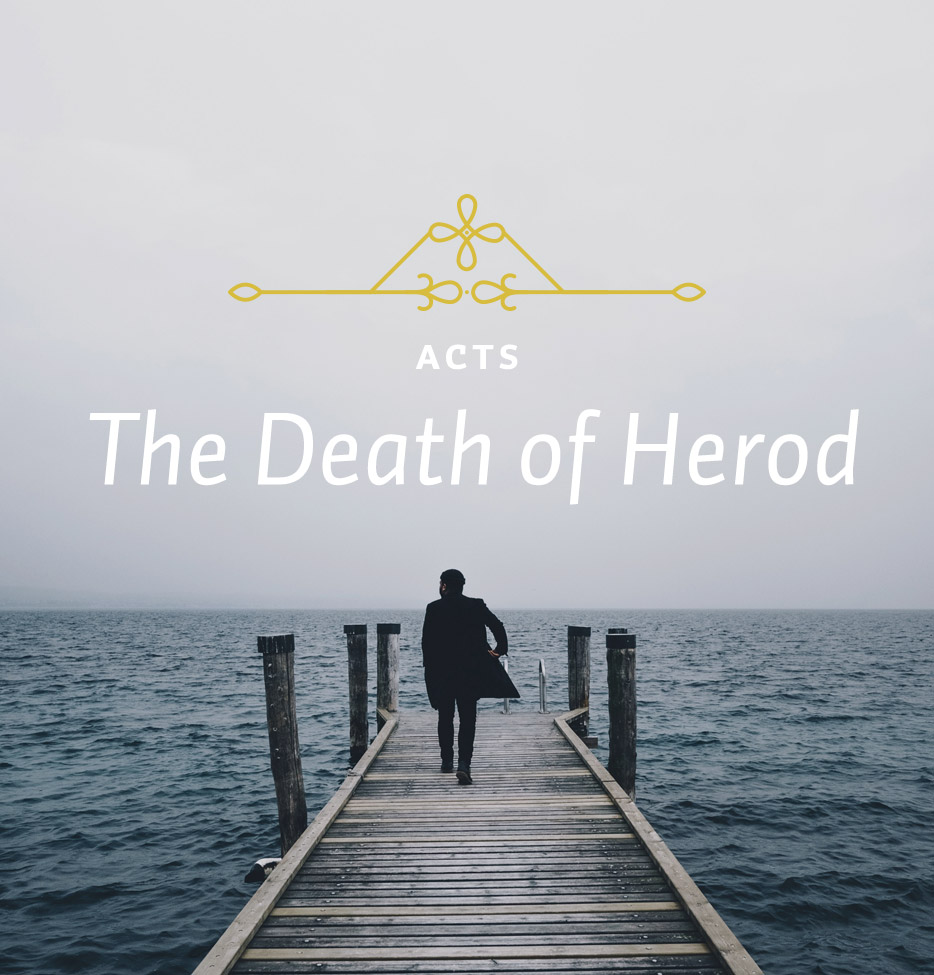Herod Agrippa I, the Herod of Acts 12, had an interesting career. He was raised in Rome, and while he was there he became a friend of Gaius Caligula. That was not a great honor. Caligula turned out to be shockingly corrupt even in a shockingly corrupt age. But Herod got to know him, and when Caligula came to the throne, he appointed Herod to a prominent position. In A.D. 39 Herod was in Rome, contributed to the fall of Herod Antipas and received his tetrarchy as a result. After the ascension of Claudius in A.D. 41, Herod also received Judea and Samaria and therefore ruled at last over all the territory of his grandfather.1
We do not know a great deal about some of the Herods, but we do know a lot about Herod Agrippa I, primarily because Josephus has written much about him. One thing Josephus tells us is that Herod tried hard to get on the Jews’ good side. If we are cynical, we might say that he did this for political reasons. He knew Judea was a trouble spot. He wanted to keep both peace and his position. But perhaps Herod also had a genuine respect for Judaism. He was half-Jewish himself, and we are told that he even took part in some of the temple ceremonies, such as reading the law publicly on certain occasions.
Acts 12:19-25 is a place where something we are told about in Acts is duplicated for us also in secular literature. Josephus tells about Herod’s death. It is much like what we find here, although Josephus adds a few embellishments to the story. If it were the other way around—if the account in Josephus were the more straightforward and that in Acts elaborated—liberal scholars would dismiss the biblical account as untrue. As it is, they are inclined to accept these additions. Conservatives believe the Bible over Josephus and would accept it even if there were a contradiction. But there are no real contradictions, and there is no reason to question Josephus any more than the Bible in this case. Here is what Josephus tells us.
After the completion of the third year of his reign over the whole of Judea, Agrippa came to the city of Caesarea…. Here he celebrated spectacles in honor of Caesar…. On the second day of the spectacles, clad in a garment woven completely of silver so that its texture was indeed wondrous, he entered the theater at daybreak. There the silver, illumined by the touch of the first rays of the sun, was wondrously radiant and by its glitter inspired fear and awe in those who gazed intently upon it. Straightway his flatterers raised their voices from various directions—though hardly for his good—addressing him as a god.
“May you be propitious to us,” they added, “and if we have hitherto feared you as a man, yet henceforth we agree that you are more than mortal in your being.” The king did not rebuke them nor did he reject their flattery as impious. But shortly thereafter he looked up and saw an owl perched on a rope over his head. At once, recognizing this as a harbinger of woes…he felt a stab of pain in his heart. He was also gripped in his stomach by an ache that he felt everywhere at once and that was intense from the start.2
Josephus says that Herod endured this pain for five days before departing life in his fifty-fourth year, the seventh of his reign.
The lesson of Herod’s death was not lost on those who were present, certainly not lost on Josephus. It was that no mere mortal dare take the glory due to God alone. Herod did that, and God struck him down.
1Details of the Herodian dynasty may be found in many places. I have taken these from A Dictionary of the Bible, ed. James Hastings (Edinburgh: T & T Clark, 1958), vol. 2, 353-362. Original edition 1899.
2Josephus, Josephus, vol. 9, Jewish Antiquities, trans. Louis H. Feldman (Cambridge, MA: Harvard University Press; London: William Heinemann, 1965), 377-381. The early church historian Eusebius, whose material is obviously taken from Josephus, says that it was an angel (no doubt the angel of Acts 12:23) and not an owl that Herod saw prior to his being smitten (The Ecclesiastical History).






